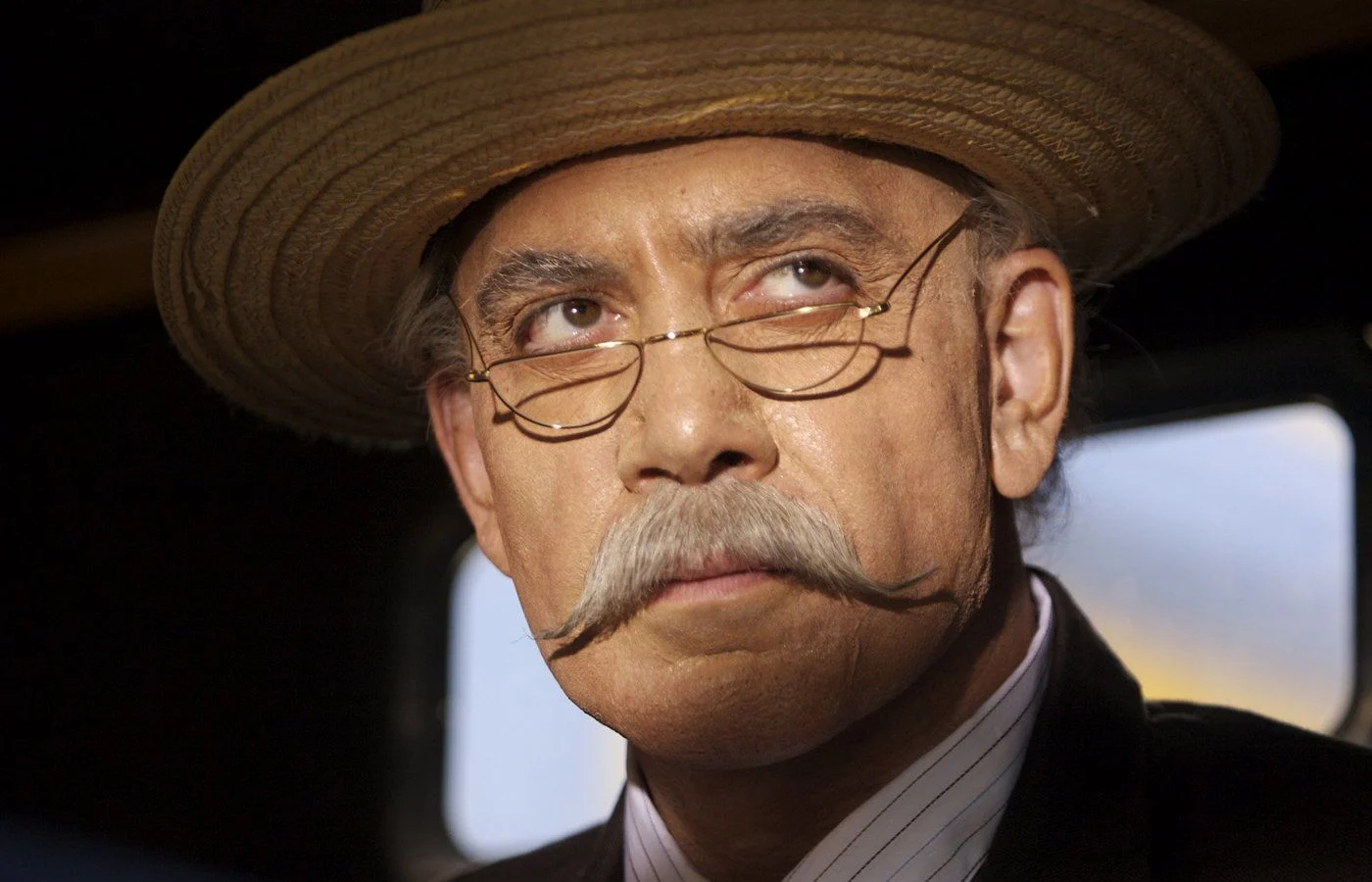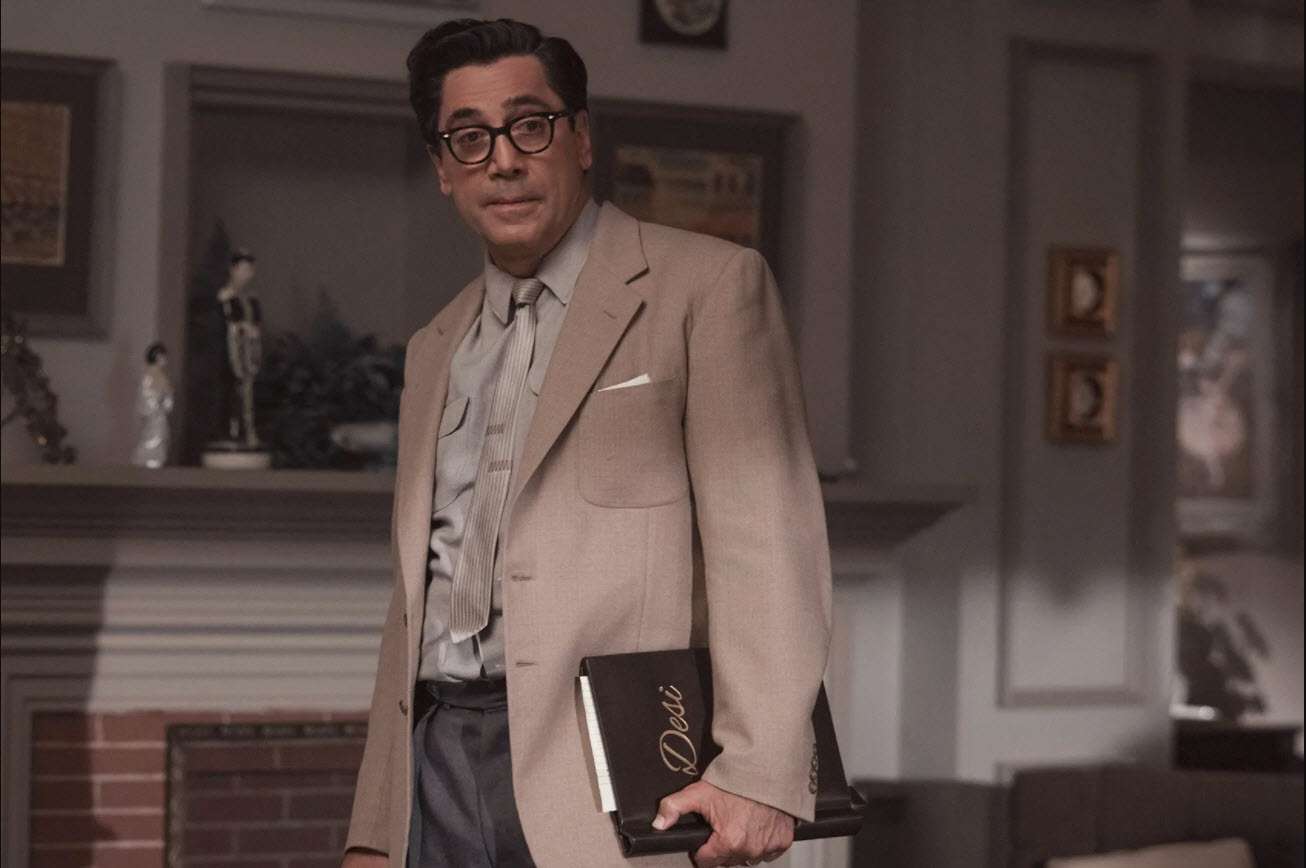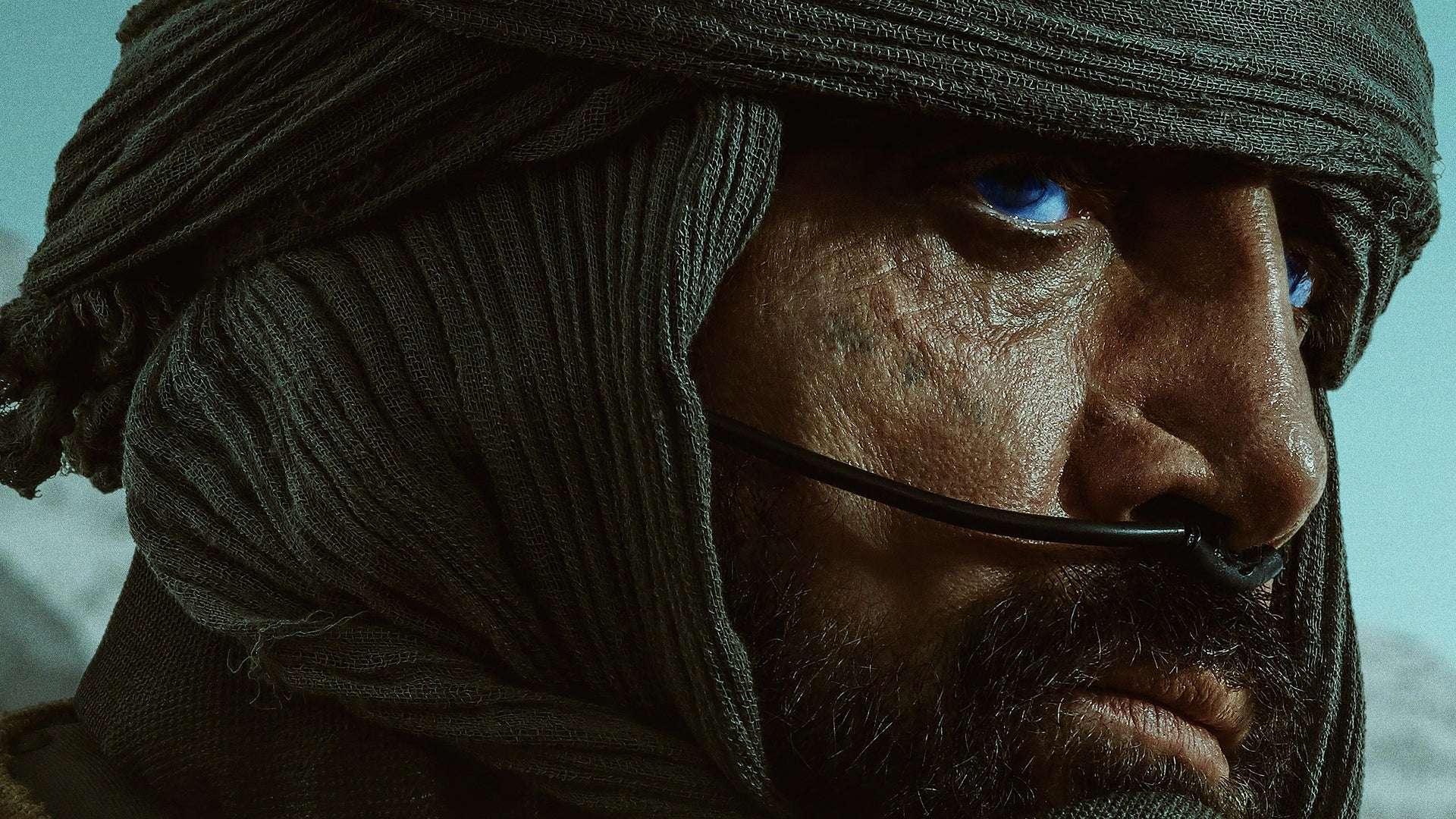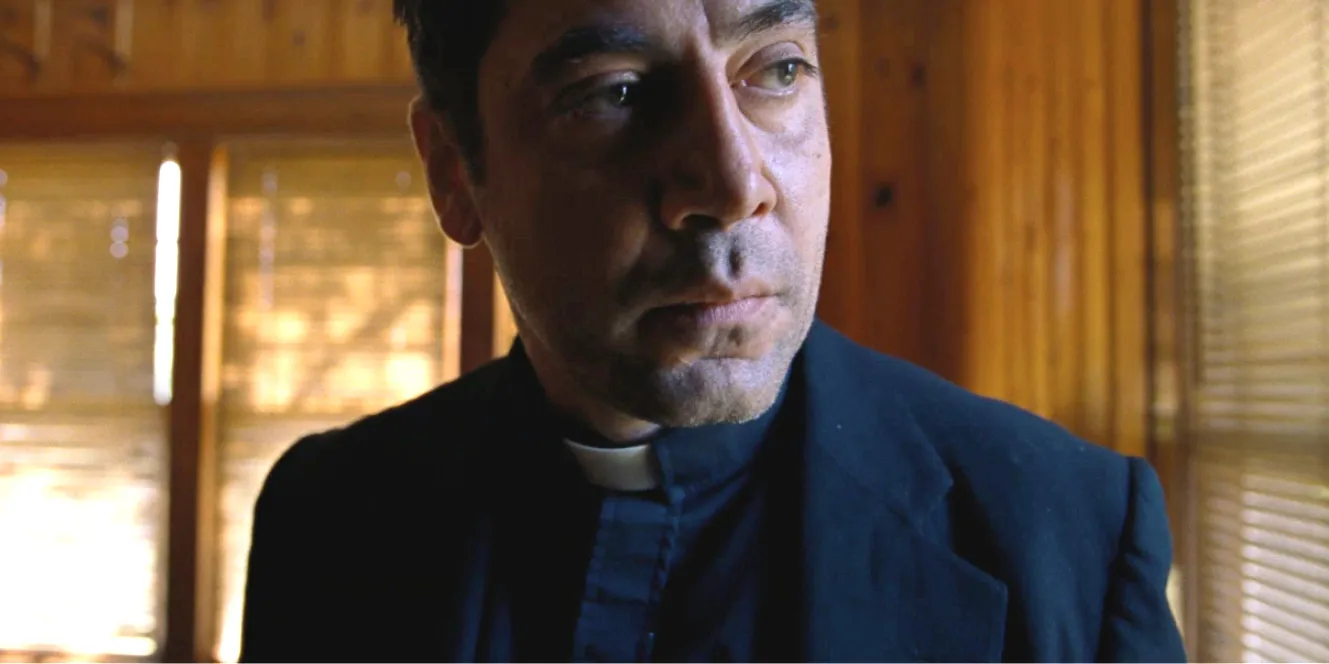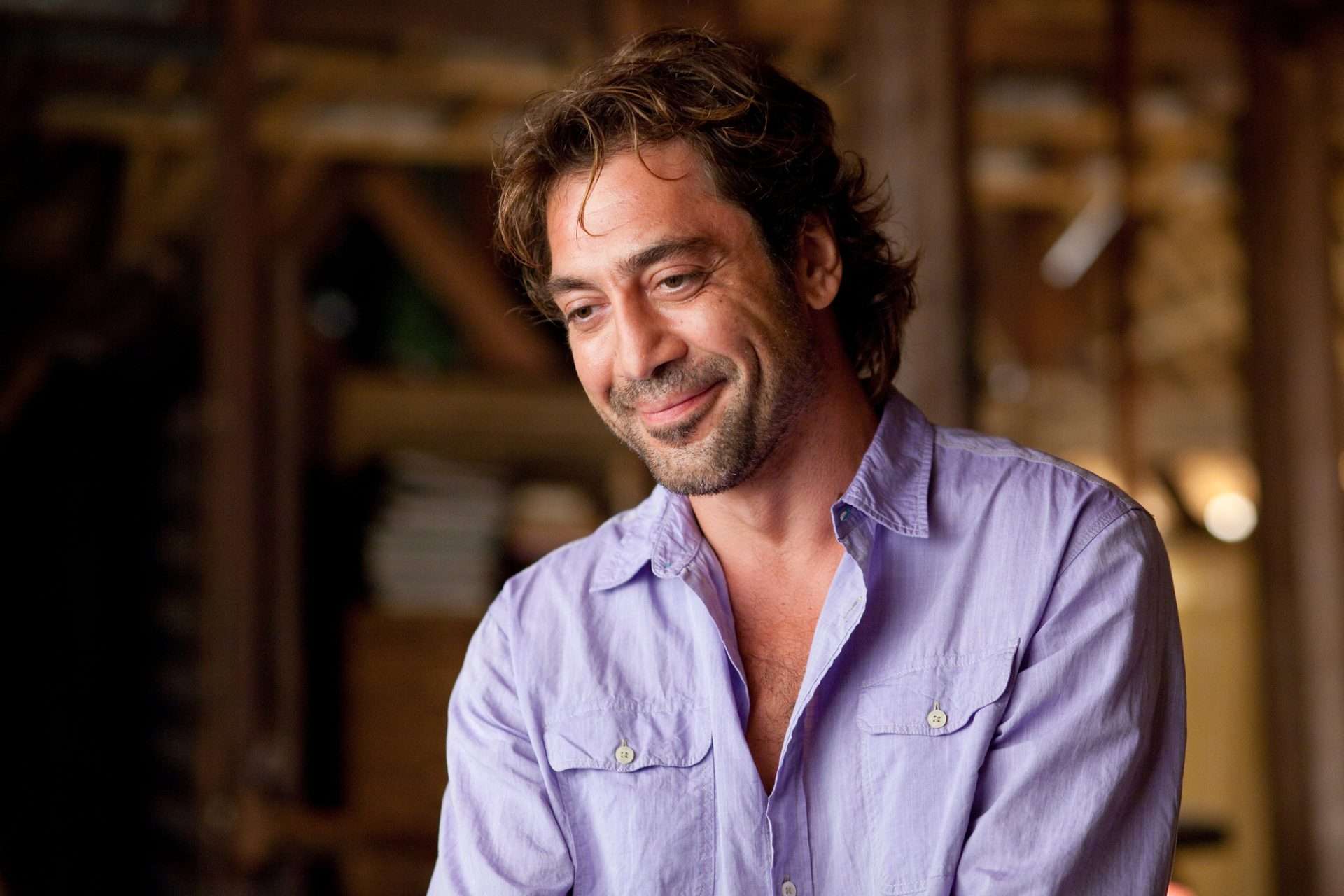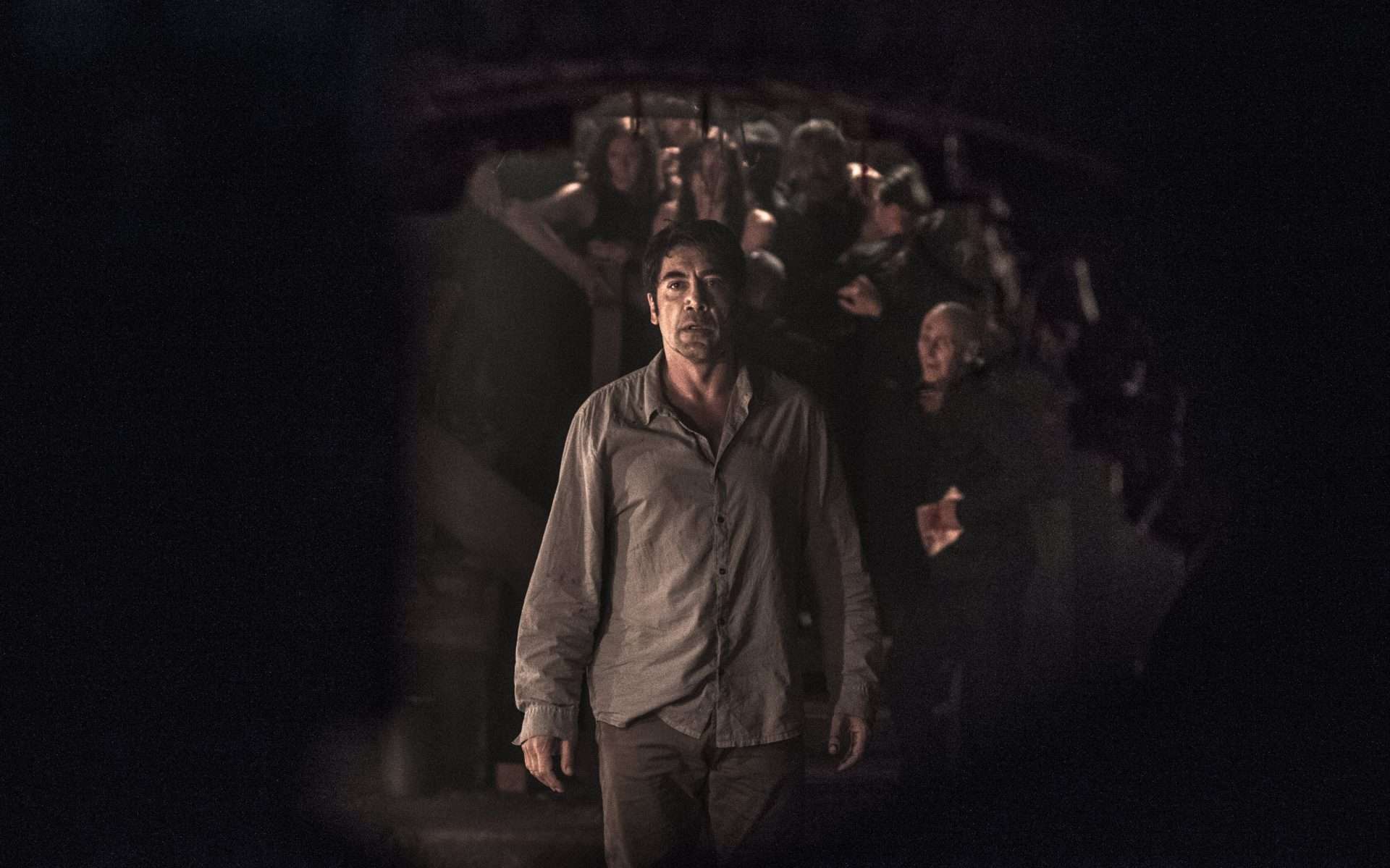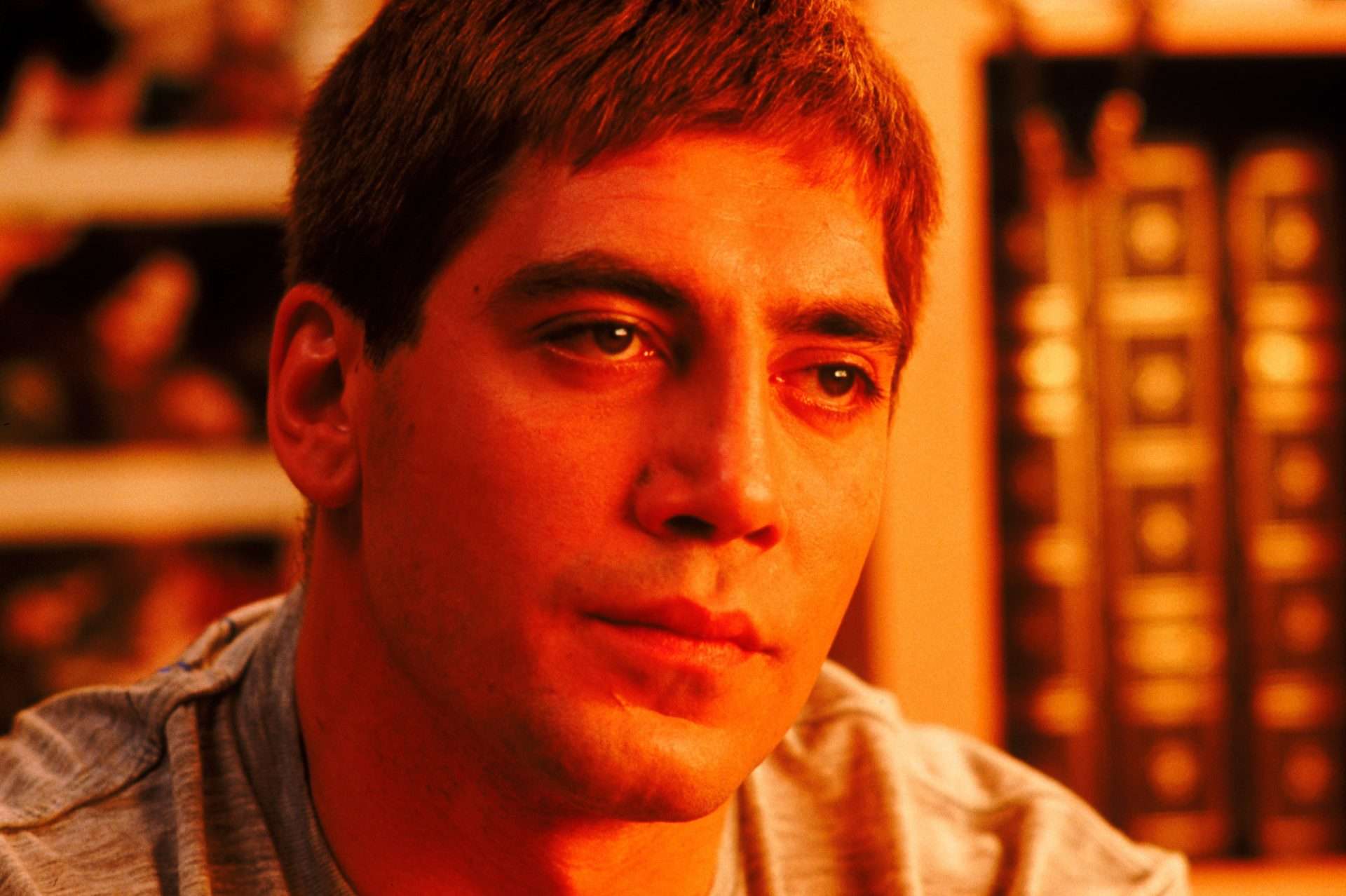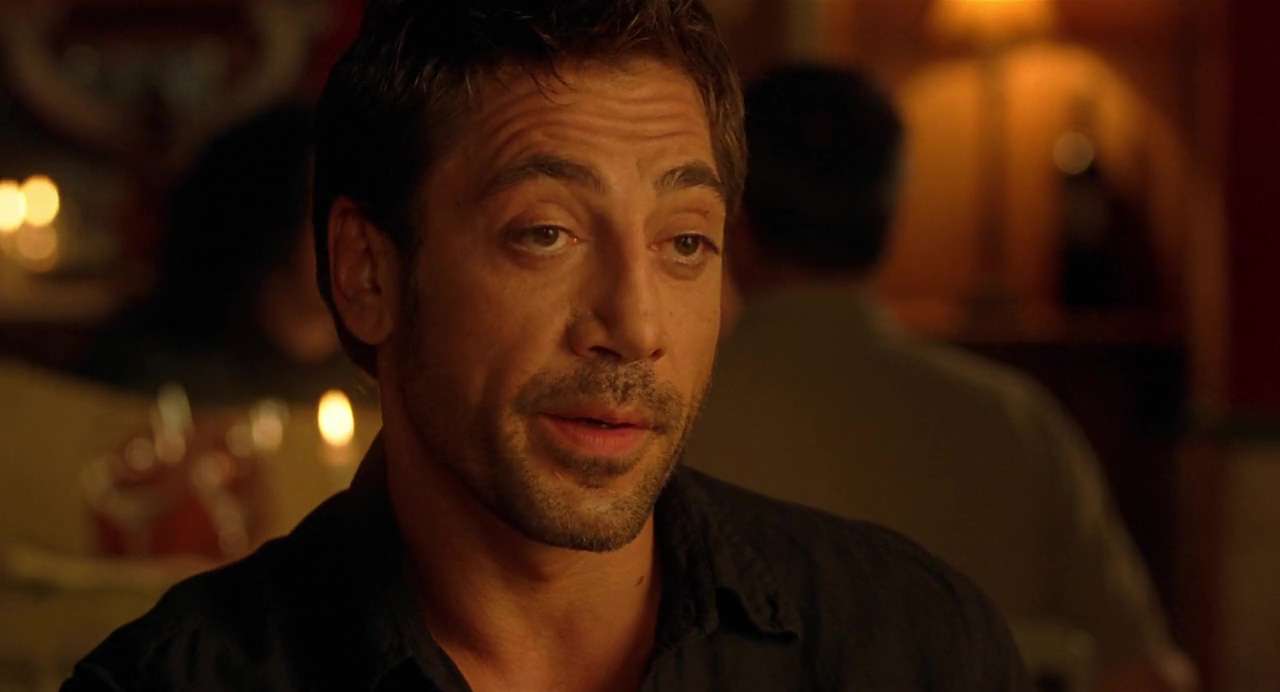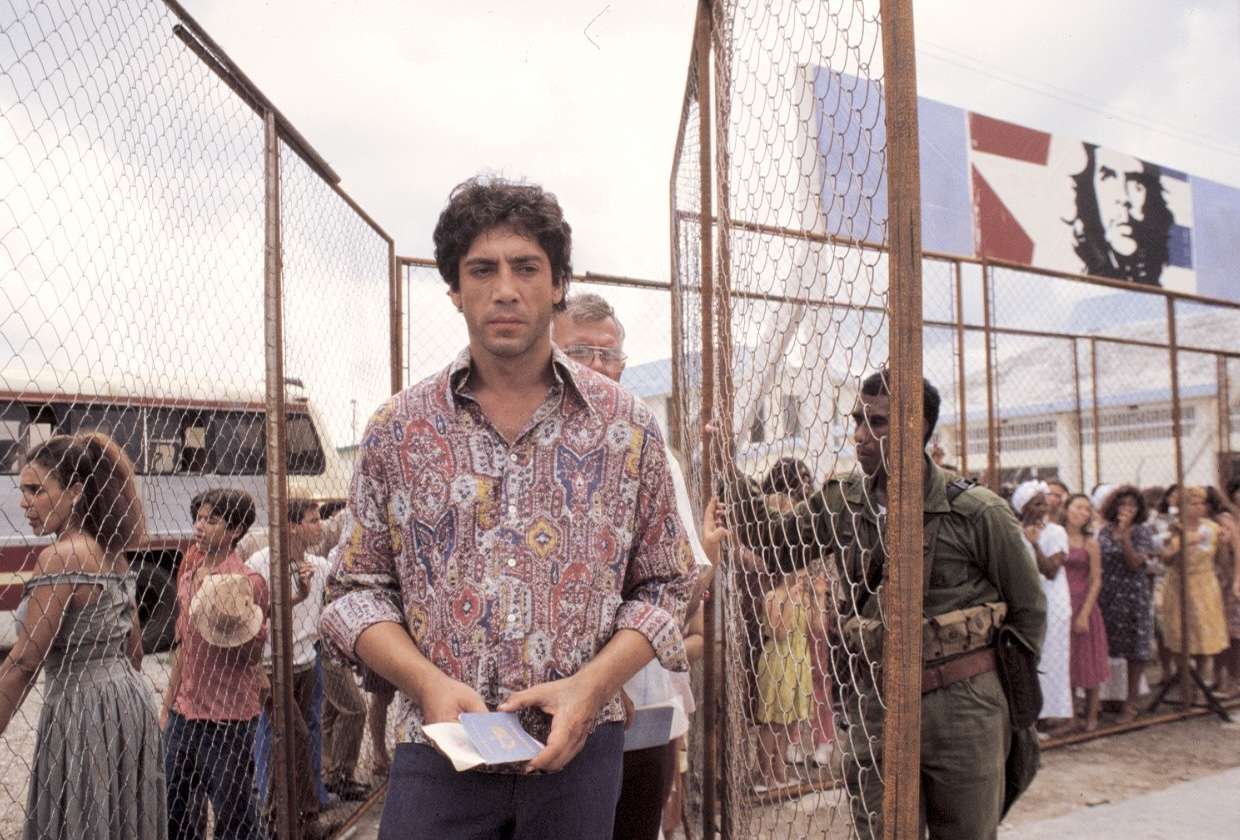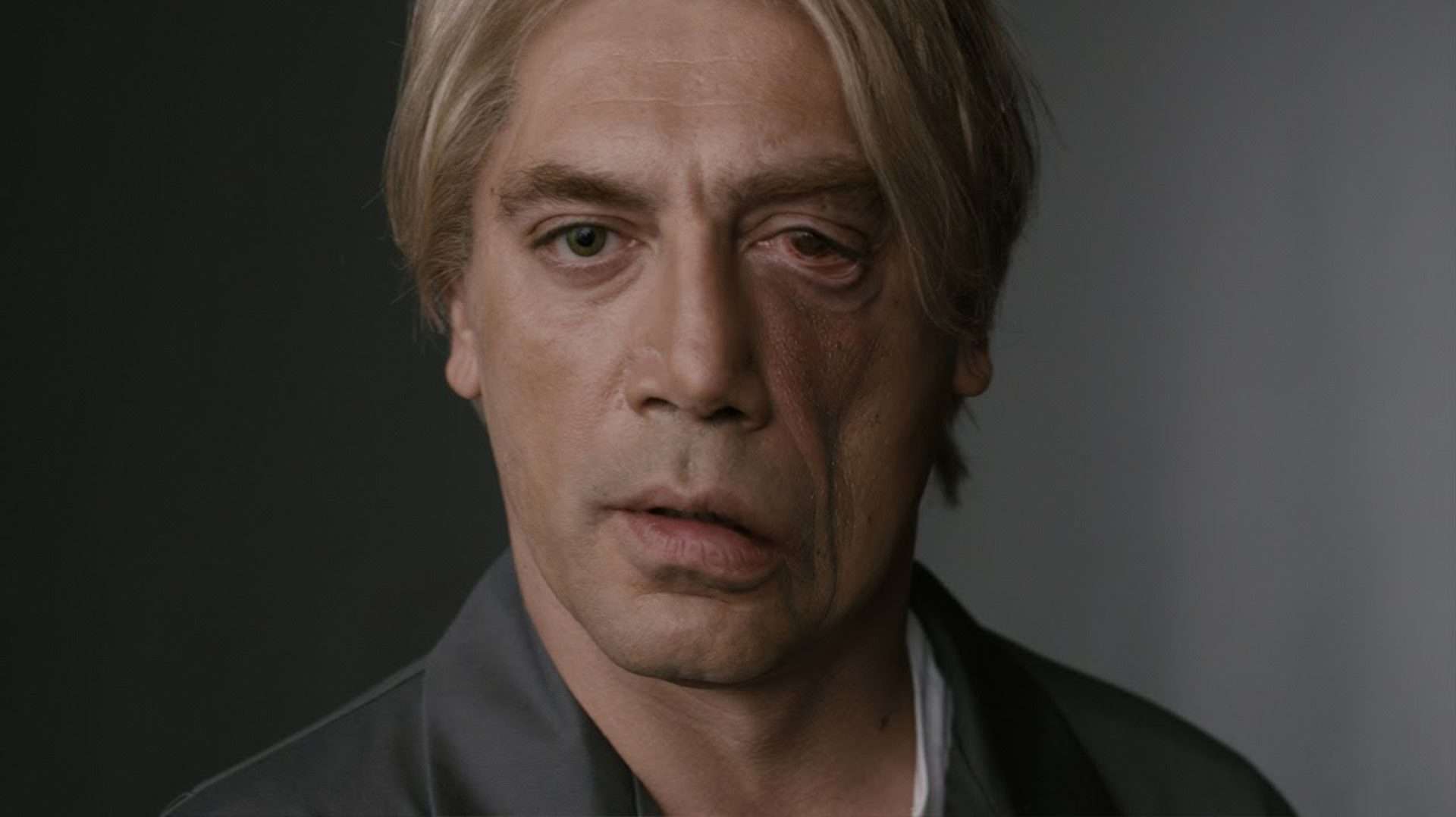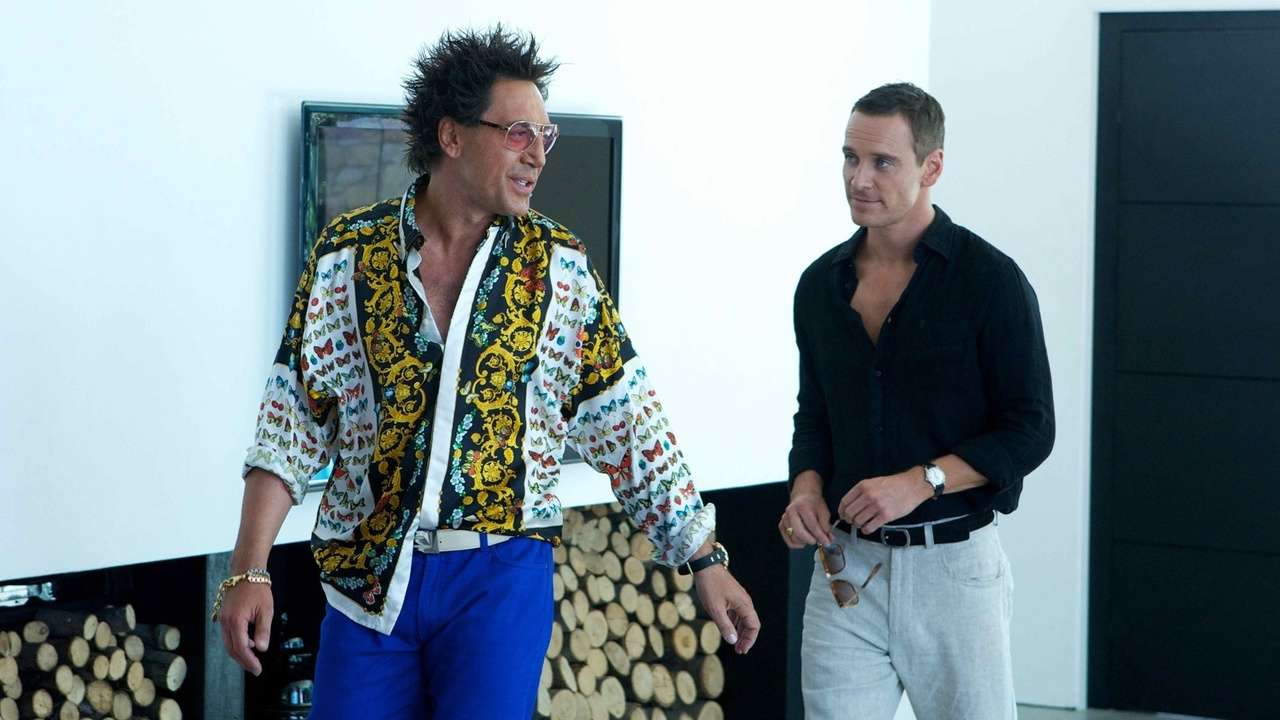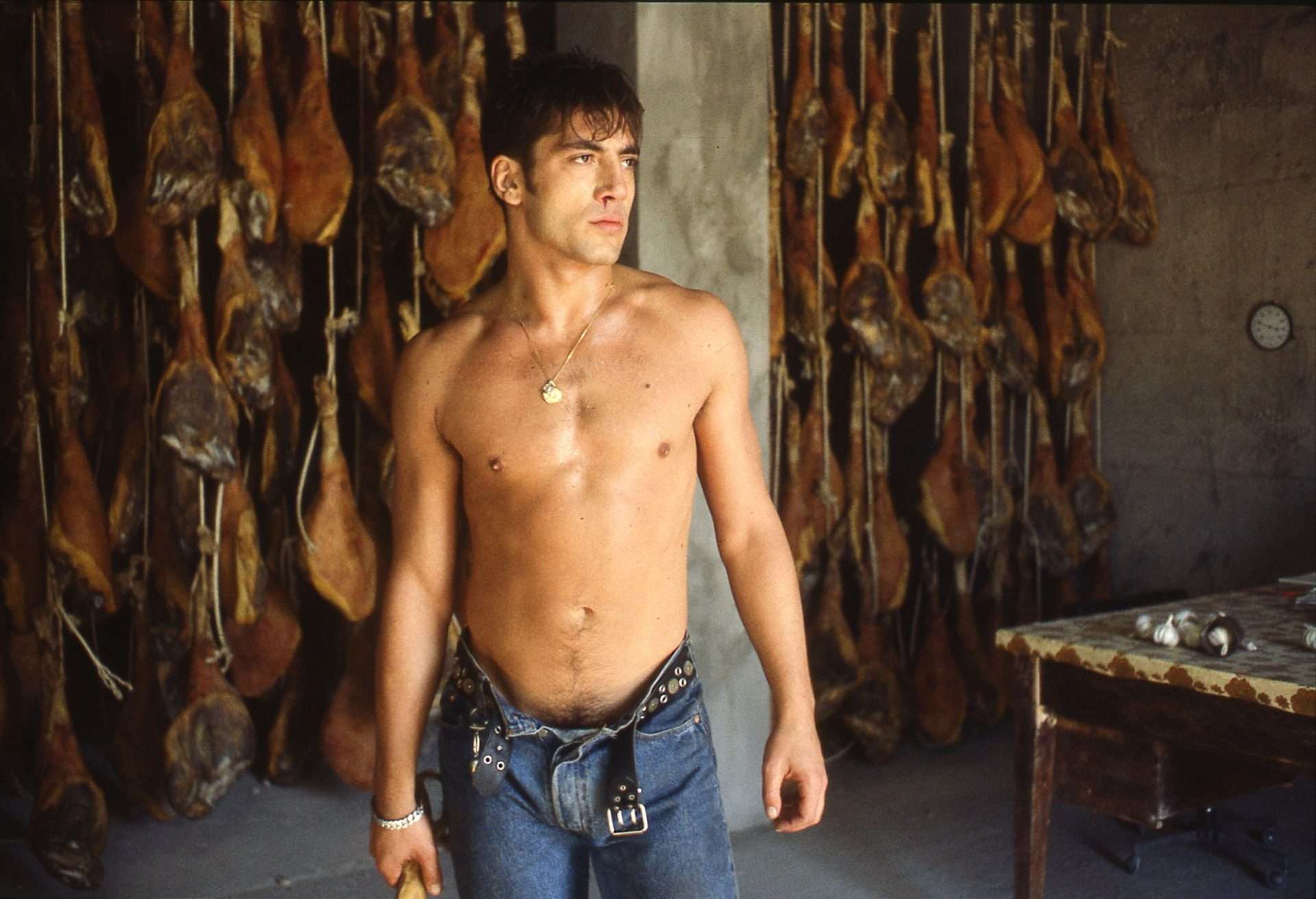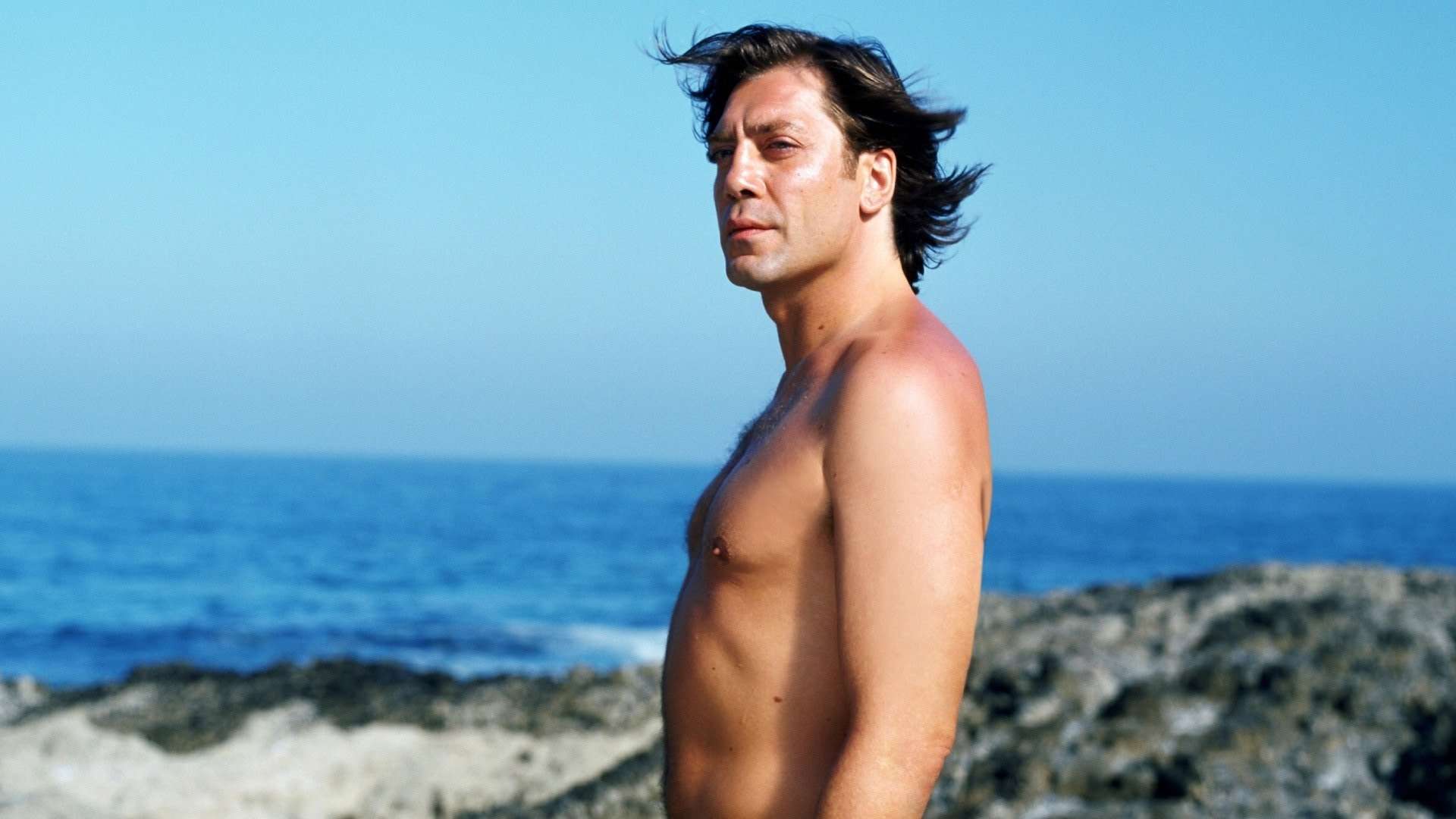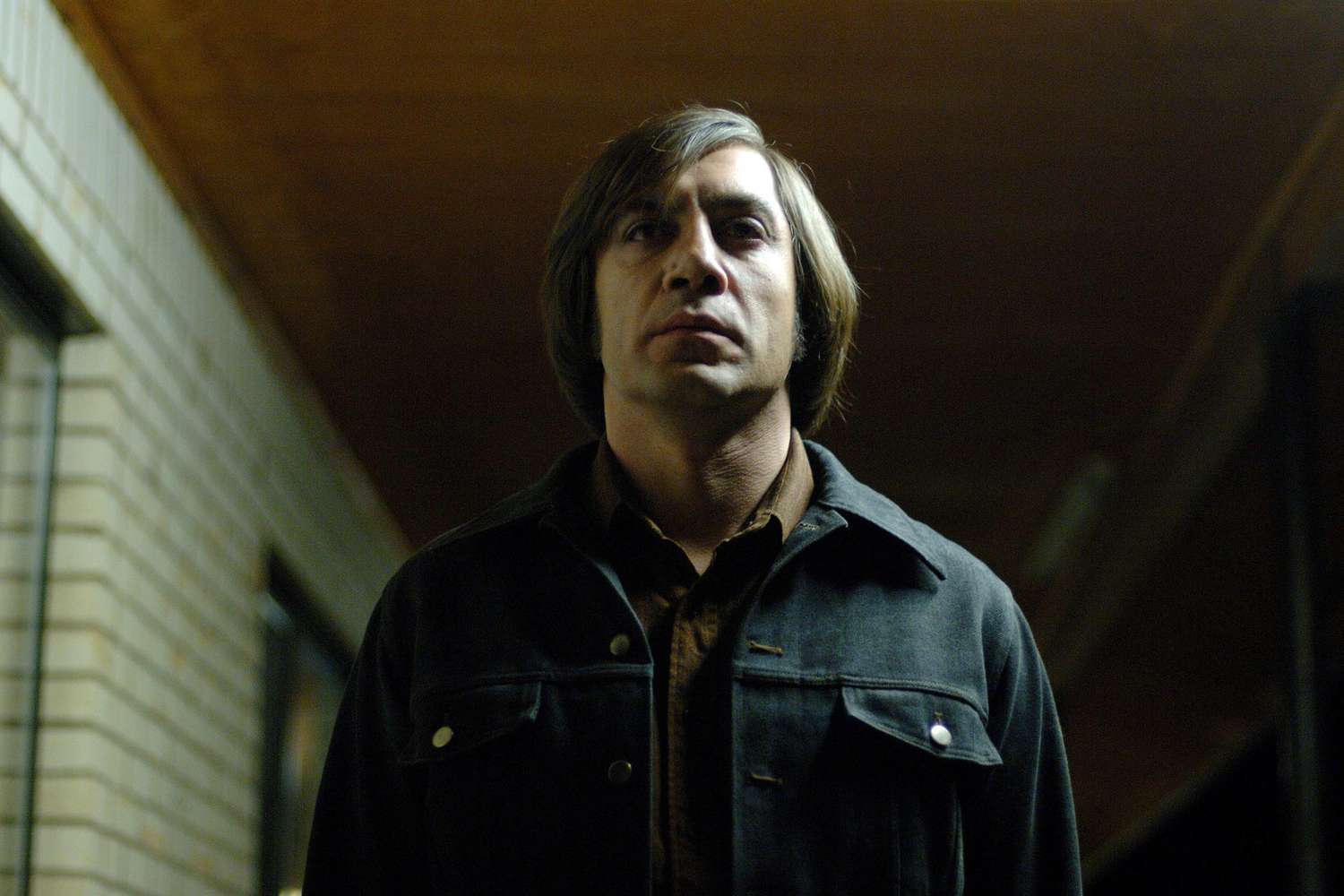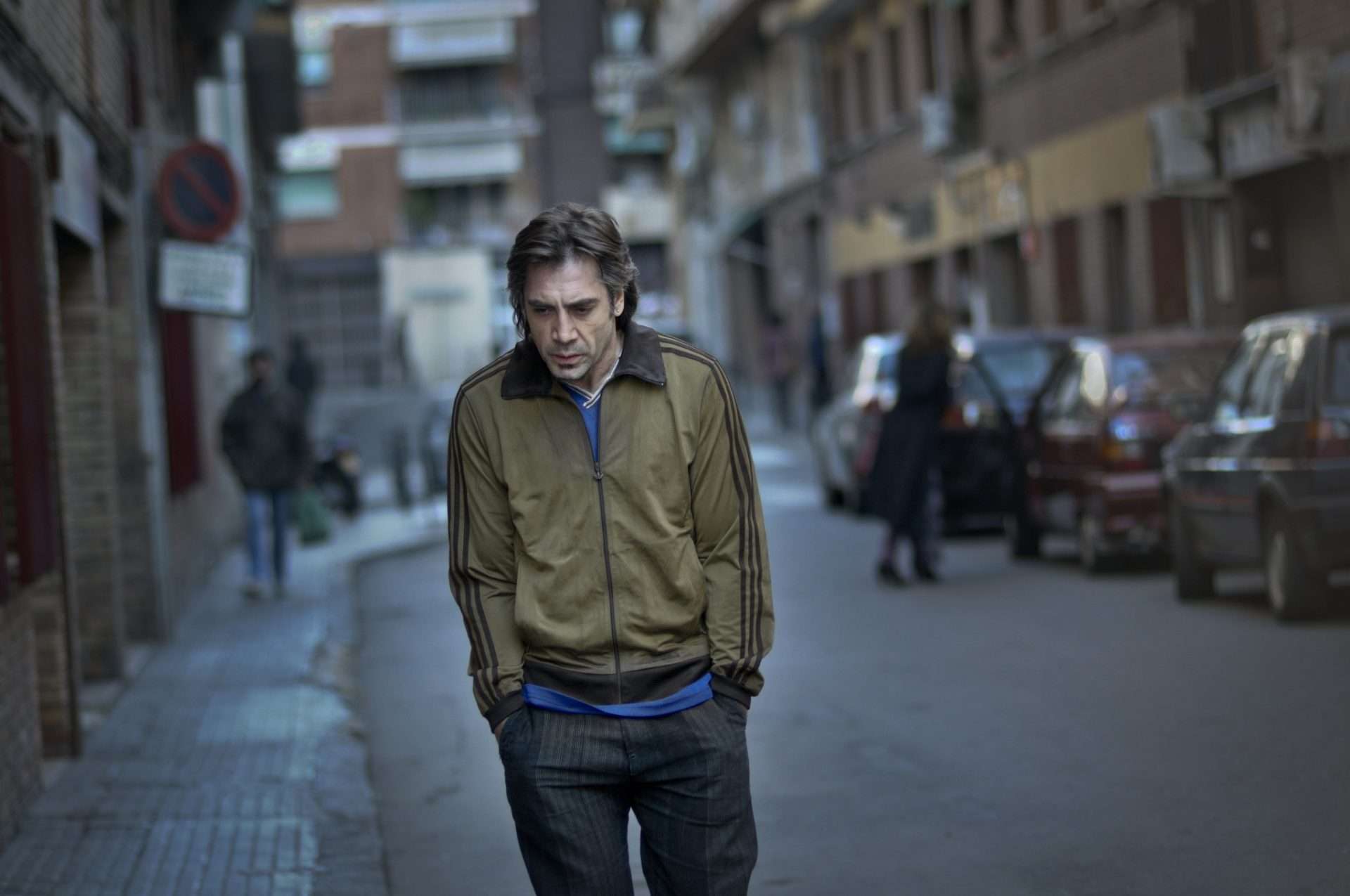Javier Bardem emerged in Spain in the 1990s as a different kind of movie star. Scion of a notable acting family, his privilege and experience manifested in supremely confident leading roles in crossover hit “Jamon, Jamon” (1992) and Almodóvar’s “Live Flesh” (1997). With his appealing features and compelling screen presence, there was little doubt Hollywood came calling, and indeed, in the new millennium, he has joined Antonio Banderas and his equally talented wife, Penélope Cruz, as the industry’s most prominent Latin imports. He was daring in “Before Night Falls” (2000), for which he received his first Oscar nomination and appeared in films by Michael Mann and Miloš Forman. He would eventually rise to superstardom as the embodiment of calculating evil in “No Country for Old Men” (2007); he won the Oscar this time for one of the most chilling depictions of villainy in recent memory.
Ever since, Bardem has acted with the refreshing freedom of a cultured performer going wherever his muse takes him. Sure, he’ll take jobs in the “Pirates of the Caribbean” and “Dune” franchises, but he’ll find time for Terrence Malick and Asghar Farhadi. Big-budget studios and the festival circuit alike view him as one of the safest bets in the business, a performer who can captivate with his alluring continental charm or terrify with his capacity for emotional distance. This article will rank 15 of his greatest roles to date, offering an overview of this performer’s myriad talents across a range of genres.
15. Love in the Time of Cholera (2007)
Adapted from a classic work of 20th-century fiction by Gabriel García Marquez, this largely faithful retelling indicates just how smoothly the author’s luxurious, magical realist prose translates to the big screen. Bardem stars as Florentino Ariza, a businessman driven to insanity by his passion for his childhood sweetheart, Fermina Daza. The plot is like a much darker and more fantastical reworking of “The Great Gatsby,” another novel that explores the intersection between love and obsession. However, whilst Gatsby is still a romantic hero, Florentino Ariza is something more sinister and manipulative altogether.
Needless to say, playing a sex-addicted, maniacally obsessed quasi-stalker isn’t the easiest role to get right. You need the exact skillset that Bardem has, the ability to vacillate between charm and creepiness. He provides the necessary foreground for director Mike Newell’s visual flourishes, which tastefully imbues the real Colombian setting (and its political ramifications) with magical realism. The result is a satisfactory adaptation and an important showcase for Bardem’s talents as a romantic anti-hero.
14. Being the Ricardos (2021)
Bardem received his latest Oscar nomination for this biopic about the professional and personal relationship of Desi Arnaz and Lucille Ball, especially the production of I Love Lucy. On a purely aesthetic level, it’s a fun ride to see a classical era of Hollywood and the birth of television be recreated and to see writer-director Aaron Sorkin tug away at the veneer of respectability behind it all. Whilst all of Sorkin’s work is political in one way or another, “Being the Ricardos” is his most robust directorial effort to date because of its integration with the character work and the period setting, which avoids everybody’s dialogue sounding like the Sorkin cliche.
Of course, it helps if you have a stacked cast on your side. Bardem is wonderfully charismatic as Arnaz and is flanked by the equally committed Nicole Kidman as Lucille Ball and J.K. Simmons as their co-star Fred Mawley. Bardem stands out because his performance feels more natural and less mannered into a particular accent or affect than Kidman’s. After all, this is one Latino icon of entertainment emulating another, carrying the weight of history on his back with ease. A reminder, if any were needed, that Bardem is one of the best around.
13. Dune: Part Two (2024)
Writing this list in March 2024, the world seems to be taken with “Dune: Part Two” mania as the sequel dominates the box office and receives rave reviews. It’s certainly an upgrade on Villeneuve’s first stab at the franchise in 2021: that film was ambitious in scope but underwhelmed in plot, feeling like a prelude to something greater. Well, this spring that something arrived with one of the most enthralling pieces of blockbuster entertainment in recent years. Crucial to its success is an all-star cast of legends (Christopher Walken, Charlotte Rampling, Stellan Skarsgard) and new blood (Austin Butler, Timothée Chalamet, Zendaya). Somewhere between the two is Bardem as Stilgar.
The character is a close confidant of the (anti?) hero Paul Atreides, a guiding hand on the young leader’s shoulder. His alliances are never in doubt, but sometimes his motives might be. Bardem plays the role with a ragged sense of know-how and sufficient intensity. In such a compelling ensemble as “Dune 2,” each player is as important as the next, and whilst Bardem may not receive the plaudits of his co-stars for this particular outing, his contribution cannot be overlooked.
12. To the Wonder (2012)
Depending on who you ask, the work Terrence Malick has made since his magnum opus, “The Tree of Life,” in 2011, is the work of a magician of the medium operating freely or the overwrought pretensions of a once-great auteur. From 2011 to 2019, the once elusive Malick became suddenly prolific, and his now-legendary status was attracting a new generation of stars. Bardem is one of the few Hollywood A-listers in his late-career work who seems comfortable with the material given to him.
In 2012’s “To the Wonder,” he plays Father Quintana, a priest who offers guidance to the protagonists whilst grappling with his own crises. The role rests heavily on the actor’s charisma and confidence. Compared to fellow A-listers Ben Affleck and Rachel McAdams, Bardem seems far more at ease with improvisation and the sensual physicality that Malick’s camera gravitates towards. The characters’ religious trials form the emotional bedrock of “To the Wonder,” Therefore, it is no coincidence that the film ends with Bardem’s character rather than our leads. In a moving coda, we see Father Quintana consoling the elderly and the sick, gesturing towards the spiritual bedrock of Malick’s career, a kind of spiritual healing through nature and humanity that transcends strict religious dogma.
11. Eat Pray Love (2010)
On the one hand, it is sacrilege to place this disposable rom-com above a Malick movie. Still, the value of an actor relies at least partially on his ability to elevate middling material and to adapt to whatever genre comes his way. Perhaps if it came out now, people would be slightly kinder to the unflappably lightweight and momsy “Eat Pray Love.” After all, it has two movie stars, Bardem and Julia Roberts, who put on all the charm, a variety of stunning locations, and a surprisingly great soundtrack. Ryan Murphy has his detractors, but he sure knows what he’s doing when crafting easily digestible populist entertainment.
In this movie, Bardem is the mildly exorcised Latino lover at the center of Roberts’s affections. Lifting himself above the sometimes reductive stereotypes of the script, Bardem appropriates the dangerous Don Juan of “Vicky Cristina Barcelona” (more on that later) into a much more affable performance suitable for the material. Watching him, it’s difficult to imagine that three years prior, he had played Anton Chigurh, a surefire indicator of an actor who can do just about anything without the gimmicks and method shtick applied by his contemporaries. Next time you’re on an airplane or browsing the dredges of Netflix, you could sure do worse than “Eat Pray Love.”
10. mother! (2017)
When “mother!” arrived to much fanfare and controversy in 2017, the performances were the last thing on anyone’s mind. Darren Aronofsky’s provocative horror film popped a fair few monocles with its captivating blend of religious imagery and body horror. No matter your view on the director’s work, the film was unsettling viewing and triggered a suitably divided reaction. Nevertheless, any film that flirts with surrealism or biblical allegory threatens to become impenetrably intellectual without a core of compelling human performances at its core. Jennifer Lawrence provides a vulnerable and relatable core to the picture, and Bardem provides a similarly compelling presence as her husband, a celebrated poet turned megalomaniac messiah.
It’s a credit to Bardem and Aronofsky that the character (named only Him in the credits) never becomes entirely detestable. It recalls John Cassavetes’ turn in “Rosemary’s Baby”: there’s never a specific moment where he turns on his wife. Instead, the film is keen to emphasize how the fragile male ego and desire for power will override affection and empathy in the trickiest of moments. It’s a cynical worldview, but one that Aronofsky commits to in a perversely honorable fashion through a series of haunting visual motifs that stick in the memory even years after the film’s release.
9. Live Flesh (1997)
Sex, politics, and violence often collide in the melodramas of Pedro Almodóvar, and never more so than in “Live Flesh,” his riveting adaptation of a Ruth Rendell novel. Bardem is David, introduced as a calming voice of reason within the film’s hectic first act. He sustains a gunshot wound and becomes a happily married Paralympian, only to be haunted by the specter of his past actions when Víctor (Liberto Rabal) enters his life. The following 90 minutes is a smorgasbord of all the director’s preoccupations: kink, camp, chaos, and General Franco all get involved in one way or another.
For any fan of Almodóvar, “Live Flesh” is a real treat, especially when so many of his key collaborators (especially composer Alberto Iglesias) are in top form. Like all great filmmakers, the Spaniard knows what he likes as a visual stylist and narrative storyteller but is expert at yielding new revelations from similar themes with every passing film. Bardem is excellent in an electrifying ensemble, initially the most subdued performer in this semi-soap opera before slowly unfurling. Sandwiched in just before the crossover hit “All About My Mother” in Almodóvar’s catalog, “Live Flesh” is an unfairly overlooked gem from an artist in his pomp.
8. Vicky Cristina Barcelona (2008)
Shortly after getting an Oscar for his chilling work in “No Country for Old Men,” Bardem used his elusive charisma to many different ends in “Vicky Cristina Barcelona.” He stars as Juan Antonio, a Spanish lover-man painter who enters the lives of two young American women; whilst Scarlett Johansson’s Cristina is initially more taken with his charms, it is actually the quieter (and engaged) Vicky, played by Rebecca Hall, with whom he ultimately forms a more meaningful relationship. All three leads are outstanding, but Bardem shines brightest in his scenes with his tempestuous ex-wife, Maria Elena, played by Penélope Cruz. The two would be married shortly after, and the charge of seeing this very talented real-life couple play off each other on-screen makes the movie worth the ticket price.
Allen has always specialized in writing what he has termed ‘kamikaze’ women, characters rendered alluring by their instability. Maria Elena certainly fits this description, with Cruz winning an Oscar for the role, and Bardem’s performance adds a male dimension to the trope. Whilst emitting an unmistakable confidence, you do get the feeling that Juan Antonio doesn’t really know what he wants. How this dynamic plays out is perhaps Allen’s most impressive character work of the new millennium, a reminder of how incisive an observer of human relationships he is when he puts effort in.
Related to Best Javier Bardem Performances: 10 Movies With A Surprising Second Half
7. Before Night Falls (2000)
Bardem had his first taste of crossover success with “Before Night Falls,” earning a Best Actor nomination. The plot certainly feels like Oscar material on paper: a biopic of the Cuban dissident Reinaldo Arenas. Villainized in his home country for his homosexuality and stern opposition to Fidel Castro, he would spend time in jail and ultimately die of suicide after learning of a terminal AIDS diagnosis. Director Julian Schnabel, previously famed for his work in the world of visual art, brings a painterly elegance to proceedings that nevertheless conveys Arenas’s tragedies with the necessary force.
The visual language is sensuous, mixing wandering long takes with piercing close-ups of Bardem and his co-star Johnny Depp, equally brilliant as a cross-dressing lieutenant. “Before Night Falls” makes the story of Arenas’s life feel significant because the direction and performances are so keen to emphasize the values that made his life worth living. Sexual freedom is shot from all sorts of angles, whereas the portrayal of Arenas’s arrest(s) is stern and unforgiving, a shrewd reflection of the fight for liberty against totalitarianism. Schnabel got even rave reviews for his follow-up “The Diving Bell and the Butterfly,” more recently, he directed Willem Dafoe as Vincent van Gogh. Still, as director, he has never been able to beat this moving ode to a political and artistic inspiration.
6. Skyfall (2012)
The slickest and most compelling of the modern James Bond pictures, “Skyfall” flies along on the strength of its rock-solid direction (courtesy of Sam Mendes) and an impressive array of stars. Craig is undoubtedly the most convincing Bond since Connery, and here he is supplied with a top-tier villain to foil. Bardem’s performance as the cyberterrorist Raoul Silva captures the high camp of vintage Bond with a genuine sense of intimidation expressed through his eerie fashion sense and hints of homoerotic attraction between him and Craig. In the film’s most famous scene, the hints become overtones, and the curious anti-chemistry between the two performers is a blast to watch.
The action scenes are stellar, and the dialogue between hits a somber tone that never forgets the inherent fun of the Bond universe. In the 21st century, Mendes and his colleagues suggest that a white male secret agent who can kill with impunity may be a man out of time. It’s a reminder that even the most formulaic blockbusters will reflect the ambient wisdom of their time, and “Skyfall” constitutes a solemn and largely entertaining reckoning with the past, present, and future of one of Western media’s most enduring icons.
5. The Counselor (2013)
Reviled upon its release, “The Counselor” has now amassed a fairly large fanbase, and rightly so. This collaboration between Ridley Scott and legendary American novelist Cormac McCarthy is the sort of meandering, plotless yet convoluted shaggy dog affair that will appeal to fans of “Inherent Vice,” for example, but has a heightened tone and a curious sense of camp of its own. Cruz again joins Bardem in the cast list here, an ensemble completed by Cameron Diaz, Michael Fassbender, and Brad Pitt. Bardem gets perhaps the loudest role of the bunch as the flamboyant drug kingpin Reiner. His bleached hair and taste for the finer things in life provide an interesting contrast with the more subdued nature of the titular protagonist, played by Fassbender.
He also chimes brilliantly with Cameron Diaz, who plays Reiner’s firebrand girlfriend Malkina, as sparks of anger and eroticism fly between them. Having such richly defined performances is integral to keeping a viewer engaged in a film whose character arcs and plot contrivances are deliberately obscured. Scott is a shrewd enough director to let Bardem do his thing, whilst Cruz and Fassbender operate in a lower key, and the consequence is his most formally extravagant and rewarding film of the last decade or so.
4. Jamón Jamón (1992)
Going back in time and back across the Atlantic, we arrive at Bardem’s breakthrough feature in Spain, “Jamón Jamón.” His performance here is a true tour de force in a way that made him an instant star in his home country, bursting with the kind of sexual vitality and allure that epitomized a young James Dean or Tong Leung. Bardem plays Raúl, a young model and wannabe bullfighter whom a wealthy family pays off to seduce their son’s working-class girlfriend Sylvia, played by an equally young and vibrant Penélope Cruz. Bardem’s role is explicitly grounded in his physical presence and his more conventional macho credentials compared to Sylvia’s boyfriend, a meeker middle management type. There’s an interesting and often hilarious push and pull in the viewer’s mind; Bardem’s charisma makes us root for the underdog Raúl even though we know his presence is the result of a corrupt scheme.
In essence, Bardem’s performance excels as just one of many moving parts to this incisive examination of class relations in small-town Spain. Whilst there are larger political parallels to be drawn from this story, it is first and foremost based in a distinct location, shot with a level of scorn by director Bigas Luna that is only achievable with a certain level of love and begrudging respect for such an environment. The result is something engaging, charming, and distinctly Spanish, the perfect starting point in Bardem’s rapid ascension to international stardom.
3. The Sea Inside (2004)
Alejandro Amenábar’s Oscar-winning drama “The Sea Inside” grapples with a hot-button issue many of us are uncomfortable or downright unfamiliar with – assisted suicide. Bardem plays Ramón Sampedro, a sailor who was left quadriplegic after an accident at sea and spent the ensuing decades fighting for the right to end his life with dignity. It’s a true story and one that captured the public imagination in Spain throughout the 1980s and ‘90s. Amenábar is more interested in the private ethical complications than the media circus of the case, placing at the center of his tearjerker a particularly potent performance from one of Spain’s modern greats.
Bardem spends most of the movie stationary, playing a disabled character. Such affected shtick on a regularly abled performer can sometimes seem reductive or distracting, especially when you combine it with his balding wig. It speaks volumes about Bardem’s own understanding of the human condition that his empathy for Sampedro shines through. Here was a man fighting for a cause very few of us can relate to on the surface, but in reality, we all have to reckon with the nature of our own mortality and free will one day or another. Bardem clearly channels a lot of his own feelings on the matter into an engaging and heartbreaking performance that stands the test of time.
2. No Country for Old Men (2007)
To a whole generation of cinephiles, the bowl cut and limp of Anton Chigurh is the height of cinematic evil, a relentlessly cruel psychopath who acts without motive or meaning, and the focal point of the Coen Brothers’ masterpiece “No Country for Old Men.” In the Coens’ universe, which itself expands and contracts the content of Cormac McCarthy’s novel, he is the singular component of evil against which the traditional heroes are measured, showing their professional and personal shortcomings and qualities.
Bardem’s performance as Chigurh is at once the archetype of evil and the subversion of it. The actor is carefully cast for his Latino background, with other characters emphasizing his exotic nature in relation to the dry, white landscapes of the Deep South. In a famous scene at a gas station (you know the one), his threat to the man behind the counter is a chilling inversion of a classic Western trope, the idea of quickness of thought, smart-talking, and luck being able to get you out of a jam.
But Chigurh is unforgiving and unwilling to play by the rules, as Bardem continues to stagger off into the clear sky after another murder. This role won Bardem pretty much every award on the circuit and continues to be his primary source of renown. Though it is, in some ways, a performance against type, in other ways, it ideally represents his capabilities as a physical actor.
1. Biutiful (2010)
In “The Sea Inside,” Bardem plays the role of a man seeking to end his own life with dignity; in “Biutiful,” his character, Uxbal, doesn’t have much say in the matter. He has been diagnosed as terminally ill and must spend the following months reassessing his place in the universe and the connections he forges with those around him, especially his two daughters. If, on the surface, this sounds interminably boring, then remember you’re in the capable hands of director Alejandro G. Inarritu (later of “Birdman” and “The Revenant” fame), who is one of modern cinema’s best at moving the camera, blocking a scene, and evoking the humanity out of his A-list performers. In this instance, he drew another Oscar-nominated turn from Bardem.
Of course, there’s Javier, this time as a haggard working-class character who is forced into a position where he must balance the everyday concerns of food and sustenance for his family with newfound musings on the nature of life itself now that he knows his existence is at an end. His performance is the key contribution to this achingly beautiful treatise on the nature of living if we ever truly cease to exist when our legacy can live on through actions and friendships.

